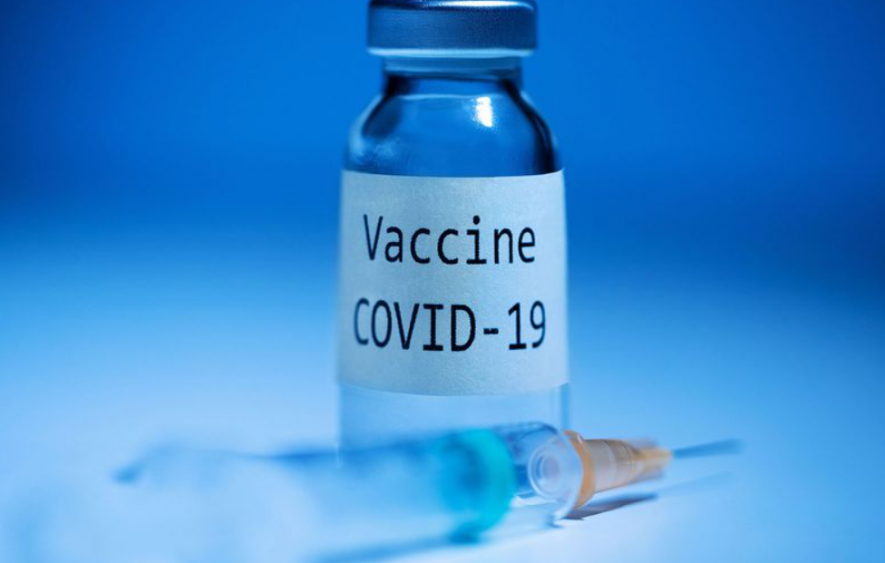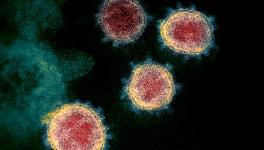Anti-viral Drug may Drive Mutations in COVID, Concerns Raised on Further use

Molnupiravir is an anti-viral drug used in the treatment of COVID-19 and sold under the brand name Lagevrio. It makes replication of SARS-CoV-2, the coronavirus that causes COVID-19, difficult. But lately, this drug has worried experts as it may spur the evolution of new variants of the coronavirus.
The basis of this apprehension is the latest study published in a preprint server medRxiv. This study has not been peer-reviewed till now. However, it studied more than 13 million sequences of the SARS-CoV-2 and found that many sequences bear the fingerprints of Molnupiravir. Sequences are the genetic sequences of the coronavirus, which provide details about the virus' genetic makeup. The study authors claim that treatment with Molupiravir has sparked the evolution of new variants that can also have the capacity to spread. Notably, mutations in the virus, in some instances, help it to evade immunity and also become more contagious.
Mutations occur through a random natural process where the genetic material (in the case of SARS-CoV-2, it is the RNA) acquires changes. Not all mutations are meaningful, but some can benefit the virus, at least in evading immunity (acquired by both vaccines and prior infections) or transmissibility. More so, some mutations can also provide the virus with the capacity to cause more disease severity. On the other hand, some mutations can also prove to be harmful to the virus. Mutation, or the random changes in the genetic material, is the driving force of evolution.
Molnupiravir was developed by Merck, a pharma giant based in the USA and its use in the treatment of COVID-19 was approved in US and UK in 2021, while Australian regulators approved it in 2022. The clinical trial conducted by the company suggested that its use reduced hospitalisation and deaths among people at risk of developing severe COVID.
Molnupiravir functions in a way that reduces the coronavirus's replicating capacity. The drug mimics some of the building blocks of the RNA, which is the genetic material of the coronavirus. The drug promotes mutations in the viral RNA, and the virus loses replicating power. This results in a reduction of the level of the coronavirus in human cells and hamsters.
Earlier, scientists have also raised concerns about Molnupiravir that, in some cases, the drug can not fully eliminate the SARS-CoV-2. This results in the transmission of the virus from one individual to another. In such cases, the virus, which has got mutated due to the use of Molnupiravir, would be transmitted to others where it can replicate with the mutations. This eventually can spur the emergence of new variants. However, these were considered mere theoretical points.
But the new study published in the preprint server, as we mentioned earlier, has brought in some real evidence. Ryan Hisner, a co-author of the study and school teacher and a part of the loose-knit committee of the SARS-CoV-2 variant spotters, noticed peculiar patterns in the genetic sequences of the virus from across the world. Some lineages or variants contained more mutations induced by Molnupiravir than others.
The analysis of the researchers also revealed that the prevalence of the variants rose substantially in the year when Molnupiravir was first used, that is, in 2022. Moreover, the variants were also more likely to be prevalent in the countries where Molnupiravir were used widely—US, UK and Australia.
Merck, which developed Molnupiravir, on the other hand, came out with another aspect of the story. It said in a statement, "The authors assume these mutations were associated with Molnupiravir treatment without evidence the viral sequences were isolated from treated patients". So, according to them, the variants with particular mutations thought to have arisen from Molnupiravir are circumstantial.
Jesse Bloom, an evolutionary virologist at the Fred Hutchinson Cancer Research Center, USA, commented critically on the matter.
"The researchers make a good case that Molnupiravir treatment is yielding some highly mutated viruses with the capacity to spread. But it's not clear whether this could contribute to new coronavirus variants or whether it is simply creating weakling viruses that are unlikely to spread very far. SARS-CoV-2 is already generating plenty of mutations even in the absence of drug treatment," Bloom commented. The new study adds another aspect to the already apprehended use of Molnupiravir and other anti-viral drugs.
Get the latest reports & analysis with people's perspective on Protests, movements & deep analytical videos, discussions of the current affairs in your Telegram app. Subscribe to NewsClick's Telegram channel & get Real-Time updates on stories, as they get published on our website.
























